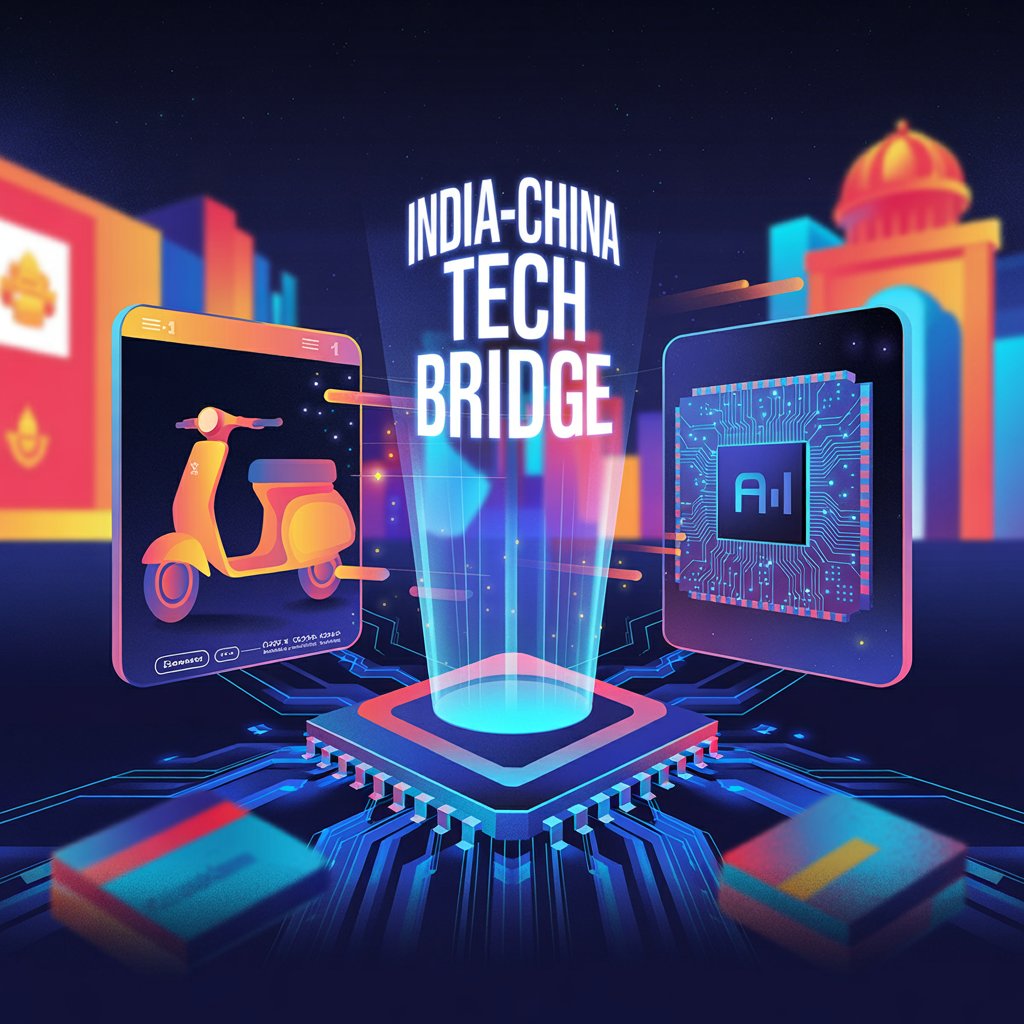
FROM INDIAN DELIVERY APP/UPI TO CHINA AI/SEMICONDUCTORS: TECH REINVENTION
“From India, For the World”
India’s startup ecosystem has already rewritten the rules of the game. We didn’t just adopt technology—we reinvented it for a billion people. Indian entrepreneurs turned smartphones into supermarket aisles, transformed payments with UPI, and built food delivery apps that weren’t just about meals—they were about logistics networks that could rival Amazon’s. This was Phase One, and in it, we proved that India could build for India. Our innovations didn’t just serve—they scaled, adapted, and empowered an entire generation.
Now, as Union Minister Piyush Goyal rightly pointed out, we stand on the brink of Phase Two—a far more ambitious and defining era. This next phase is about building not just for ourselves, but for the world. It’s about AI, semiconductors, electric vehicles, and space tech. It’s about stepping into the sectors that will shape the 21st century, not as followers, but as global leaders.
Minister Goyal also offered a sobering comparison. While Indian startups have mastered entertainment, e-commerce, and logistics, countries like China are surging ahead in electric vehicles and advanced AI. But this isn’t a dismissal of India’s progress—it’s a challenge to level up. Our success so far has laid a strong foundation; now it’s time to build higher. After all, our ancestors built Nalanda, a university that drew scholars from across the globe. Why should we settle for being the “back office of the world” when we’ve historically been a hub of knowledge, innovation, and leadership?
The opportunity before us today is unlike any other. The West is burdened with legacy systems. China, while technologically formidable, faces rising geopolitical resistance. Meanwhile, India is in a sweet spot—trusted, talented, tech-driven, and ready to scale. We are no longer just participants in the tech race. We are game-changers with the potential to bridge the divide between developed and developing nations through affordable, impactful innovation.
The message from the minister wasn’t about what India is doing wrong. It was a reminder of what we could be doing spectacularly right. The same nation that invented zero has every capability to pioneer breakthroughs in quantum computing. The country that built the largest digital payments infrastructure in the world can surely create the most intelligent, inclusive AI systems the world has ever seen.
What we now need is a shift in mindset. Indian entrepreneurs must start seeing themselves not just as local problem solvers, but as global innovators. Products must be designed from day one for international markets. Startups need to think beyond borders, build distribution networks that span continents, and bring in talent that understands global trends and demands. The success stories of companies like Zoho, which quietly bootstrapped its way to global dominance in enterprise software, are proof that it’s possible to dream—and execute—on a worldwide scale.
Importantly, this shift isn’t a distant possibility—it’s already happening. Companies like Sarvam AI are working on foundational models in Indian languages. Revolt Motors is revolutionizing EV mobility. InCore Semiconductors is pushing India’s boundaries in chip design. Skyroot Aerospace is launching India’s private space ambitions. These aren’t anomalies—they’re the sparks of a new India, quietly but surely stepping into the spotlight.
The time to act is now. The tools are around us. The talent is here. The world is watching. Our government is encouraging self-reliance. Investors are looking for visionaries. And our youth? They’re brimming with ideas and passion. The delivery apps of today were just the warm-up. The real game—the one where India not only participates but leads—starts now.
So, to every founder, engineer, designer, and dreamer reading this: keep building, but think bigger. Keep solving, but aim higher. Let’s not just innovate for India—let’s innovate from India, for the world. The future isn’t just something we adapt to. It’s something we create. And if there’s one thing we can all agree on, it’s this: India was born to create it.
“From your experience, are Indian startups ready to go beyond apps? Tell us why/why not.”